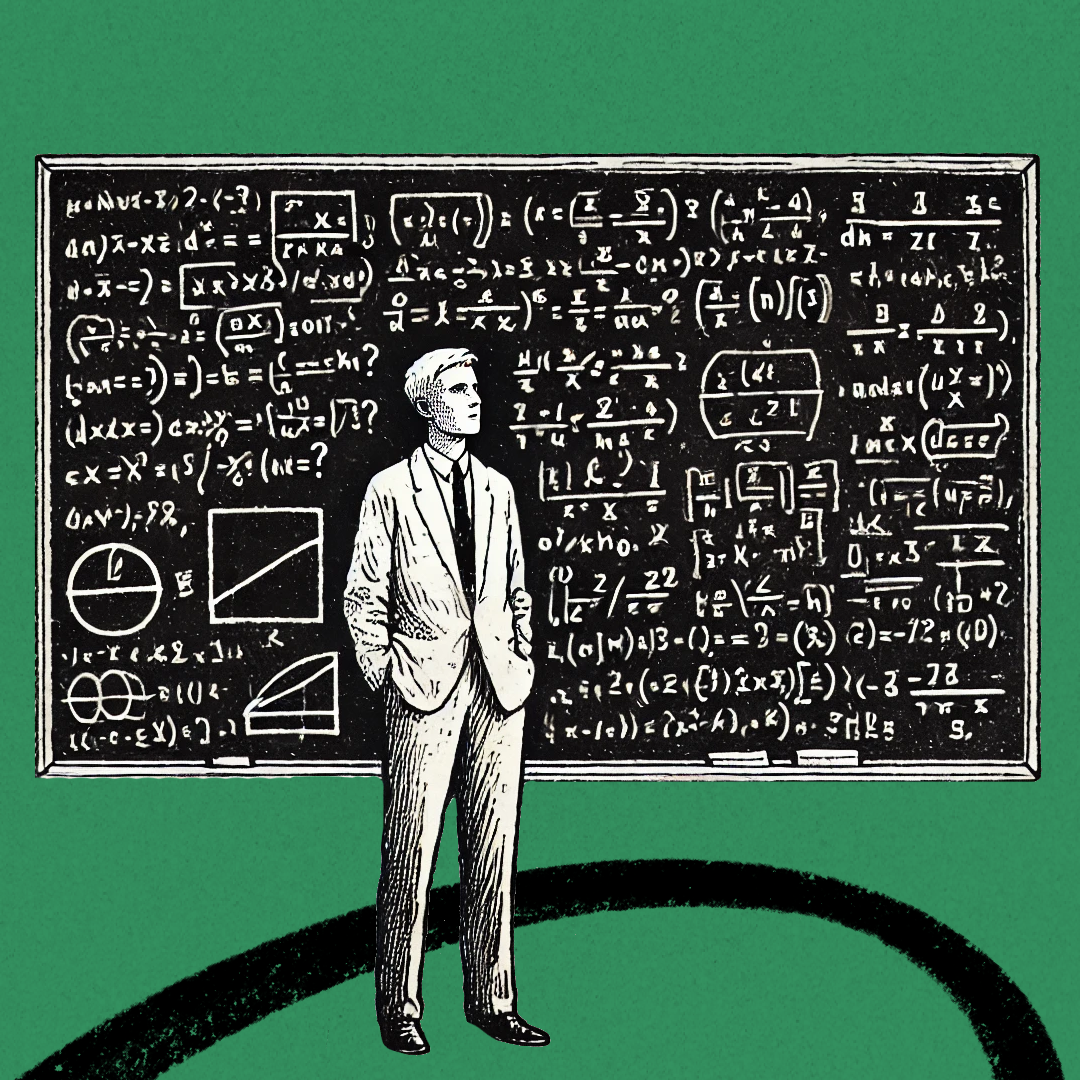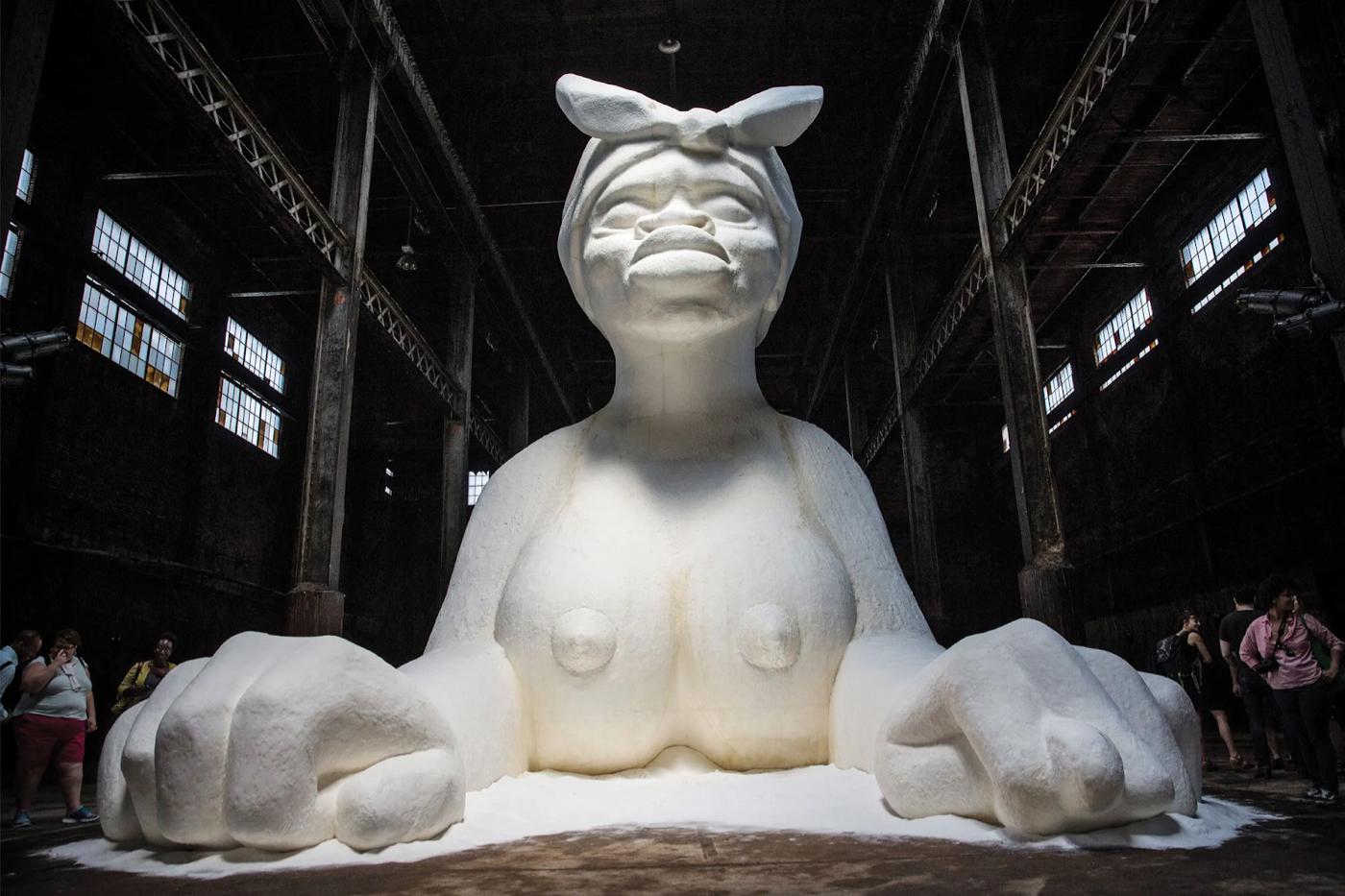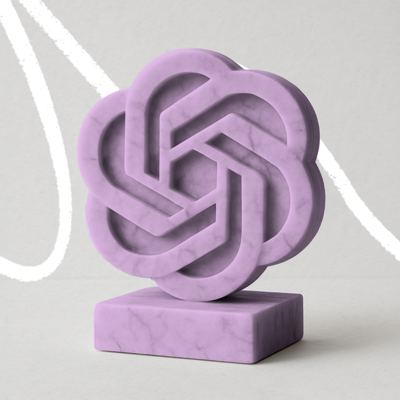
Sponsored By: Notion
This essay is brought to you by Notion, your all-in-one workspace solution. Startups can now enjoy 6 months of Notion Plus with unlimited AI, a value of up to $6,000—for free! Thousands of startups around the world trust Notion for everything from engineering specs to new hire onboarding. Access the limitless power of AI right inside Notion to build and scale your company.
When applying, select Every in the drop-down partner list and enter code EveryXNotion at the end of the form.
Was this newsletter forwarded to you? Sign up to get it in your inbox.
I am about to have a child. By “about to,” I mean in November. And by “I,” I mean I am valiantly making my wife snacks while she grows an energy-guzzling chupacabra inside her. Being a dad was not something I dared to dream of, but now that is upon me, I can’t help but feel giddy.
I also can’t help but make spreadsheets. My fatherly nesting instincts have manifested not in the selection of strollers or pastel-colored home decor, but in never-ending data analysis. There is a file on my personal hard drive packed with napkin math about raising a daughter in the great state of Massachusetts: stats about graduation rates, career tracks on which women are paid equal wages, high school placement rates to MIT (Harvard is for blowhards), and so on. I promise you the spreadsheet gets stranger tab by tab.
These trackers are all planets, circling around the gravity well of one central question: How can I give my child a happy life? It took me so incredibly long to find personal peace—a decade-plus of stumbling and suffering, of surviving cancer, of learning to let go of the grind. I hope my unhelpful math is an endearing and only slightly deranged attempt to help my daughter have the best possible life. God, please just let her be happy.
The creative state of being
In order to answer the question of how to give my daughter a good life, I sought clarity in essays about the nature of art. Creating great art is just as intrinsically motivated and messy as creating a life is, so perhaps art may have something to teach me.
Startups receive 6 months free of Notion Plus with unlimited AI, valued at up to $6,000! Notion is the go-to workspace for thousands of startups worldwide, helping them manage everything from engineering specs to new hire onboarding to fundraising. With Notion Plus, access the limitless power of AI to streamline and scale your operations seamlessly. Simplify your processes and enhance productivity with one powerful tool.
Apply now and select Every in the drop-down partner list, then enter code EveryXNotion.
You could say that I want her life to be a masterpiece or some other hokey nonsense, but I think a successful artist is perhaps one of the greatest lives humanity has to offer. You spend your day making things, you give back to the world, and (if you’re lucky) you might even be paid to be creative. As someone who has had a modicum of creative success as a writer, it has been so much more fulfilling than a regular job. While many parents only want their children to be doctors or lawyers, I would be thrilled if mine chose a creative profession.
Adam Moss, who semi-recently retired as the editor of New York Magazine, is considered by many (including Every’s own editor in chief Kate Lee) to be one of the greatest editors to ever live. He recently published the book The Work of Art, in which he profiles 41 artistic projects. In each chapter, an artist shares their story, the early drafts of a work, and how they transformed their initial idea into a finished piece.
Each project was birthed in an entirely different way. Journalist Gay Talese wrote "Frank Sinatra Has a Cold" over the course of a month, anxiously pacing around a Los Angeles hotel room. His process of daily editing and note-taking was iterative, handwritten suffering. For A Subtlety, or the Marvelous Sugar Baby, an art installation that centered around a sphinx made of eight tons of confectioners' sugar, artist Kara Walker started the process off scrawling her feelings about the project in PowerPoint before moving to sketches, miniatures, and finally producing the piece.
Source: New York Magazine.Some artists routinely put in 12-hour days while others merely worked for three or four. There was no uniformity in background: Some were raised in happy homes while others spent their teenage years lonely, using their art for solace or escapism.
The only things that were universal were the emotional states that accompanied creation. One common theme was about trusting your inner muse. Director Sofia Coppola described how she learned to trust her instincts while on set. “When I was starting out, I would have an instinct to change something, wouldn’t do it, and then in edit I would say, ‘I wish I had changed that,’” she explained. “And so now I’ve learned that when you have an instinct to do something, you shouldn’t doubt it—go with it. Later you’ll understand.”
Radio host Ira Glass offered quippy advice about taste. The New York Times executive editor Dean Baquet noted, “People get a feeling, then look at detail.”
Still, none of their words quite scratched the itch for me. I still did not know how to shape myself to make art, or my daughter’s life to be equally beautiful—that was, until the acknowledgements:
“Art has a before and an after. The before is the training—the acquisition of skills, the assumption of habits. The after is the practical activity of putting finger to key, palm to clay, and going to town.
But there is also an in-between. It's the mysterious part. Some describe that mystery as magical, otherworldly. Others view it as their subconscious churning. It doesn't matter. All artists are mystics at heart, and they're talking about the same thing— and that thing is what they can't really talk about, because it cannot be put into language…These artists tended to black out at the moment when, as Kara Walker put it, the switch turned on. They couldn't recall it for the most part, so they couldn't describe it. In a sense — a conscious sense —it didn't exist. The "art"—the magic—was the space in the middle, the hole in the doughnut, what happened when they got the before and after right.” [Emphasis added]
I think life might entirely be that hole in the doughnut. The awkward middle, the space where all advice applies and none of it does. Making a great life, a great product, a great childhood is an unknowable process. The more emotionally complex the labor, the less the laws of physics apply. The only universal quality for the great artists in the book is that they were in touch with their state of creative being and were able to access it.
The more I thought about this theory, the more I saw echoes in stories from my own life.
The creative process
I attended Brigham Young University, a Mormon school with a strict code of conduct around behavior, in particular substance abuse. All of my friends from freshman year came from strong, church-attending families. Each was raised on a similar diet of Book of Mormon study sessions, family time, and stringent rules. As with any school, many students who arrived at BYU stayed on the path their parents had set while others experimented with drugs of all kinds. I even knew a student who kept heroin in his dorm room fridge. Similar paths, similar circumstances, entirely different outcomes.
I’ve thought often of those young men. What was the difference? Many lived on the same floor, but while some ended up going on to Harvard Business School and thriving careers, others ended up dropping out and in dead-end jobs. Perhaps the answer is that there is no answer. Prescribing any path of success means that some portion of the bell curve will be hurt by the thing that helps others.
A more capitalistic version of the same idea: For every startup that has made it, I can find others that were run in the opposite way and were equally successful. Apple under Steve Jobs was a manically secretive, scary place where everything was compartmentalized. Meanwhile, Nvidia CEO Jensen Huang has 55 direct reports and conducts business in group meetings, prizing openness. Each man built his company to be the most valuable in the world. The only thing that matters is matching the culture of the company to the opportunity facing it. Entirely different paths and wholly spectacular outcomes.
Even in my study of creative companies, such as my recent profile of internet sensation MSCHF, I have found that their processes are mundane and somewhat interchangeable—some variation of recurring meetings coupled with incentive design to encourage certain behaviors. Company differentiation doesn’t appear to be rooted in organizational structure but, instead, in the emotional intelligence that guides the organization’s behavior.
That the answer to all these questions—of art, of children, of startups—is “pay attention to your circumstances, work hard, establish the right culture, and manage your emotions” might be the most unsatisfying advice ever given. Still, it is the advice that I believe to be correct. There is no spreadsheet that will tell me how to raise my daughter (but damn it if I won’t try anyway).
All of my research suggests to me that the ability to be successful is determined by your ability to be self-aware. My future child may be a tomboy, a princess-loving girl, an artist, or a math geek, any of which would be wonderful! However my child turns out, it will require me to support them with different parenting techniques and experiences. The key is that I am present and energetic enough to notice changes in my child and adjust my parenting accordingly.
Over the years of my public intellectual life, I’ve often grappled with the lack of universally true paths to success. Some part of me just wants there to be the one way, the right way, a path that we can all follow to win. But so far, I’ve always come up short. Art is another data point in favor of the idea that you can build greatness in whatever way you want. The only thing required is the humility to notice and adjust.
Evan Armstrong is the lead writer for Every, where he writes the Napkin Math column. You can follow him on X at @itsurboyevan and on LinkedIn, and Every on X at @every and on LinkedIn.
The Only Subscription
You Need to
Stay at the
Edge of AI
The essential toolkit for those shaping the future
"This might be the best value you
can get from an AI subscription."
- Jay S.
Join 100,000+ leaders, builders, and innovators

Email address
Already have an account? Sign in
What is included in a subscription?
Daily insights from AI pioneers + early access to powerful AI tools
.png)









.08.31_AM.png)
Comments
Don't have an account? Sign up!
Evan, my sensitive friend. When I read this article I think of my friend, a spreadsheet diva, a ball-busting senior executive with big sense of humor and self, who had her first marriage and first child in her 30's. Everything was a spreadsheet, planner, control, control, control. Then came time for toilet training and the child was not interested in mom's schedule or what all the literature said. Potty time would come with the daughter was ready. That was the moment of the total pivot and dramatic shift from who that adult was to the person she became. The lack of spreadsheets and all she knew before totally humbled every fiber in her body. Everything changed. The career. The home life. The different future.
An excellent article. As a parent who has raised both a son and a daughter I am guessing that you will experience every emotion you can imagine and your daughter will turn out a work of art, whether or not she becomes an artist. You're off to a good start and there's nothing wrong, in my opinion, with a bit of research and knowledge capture, even though you may find that some of the spreadsheets go unused. I agree with you that "the humility to notice and adjust" is essential.
Evan, if she turns out anything like her mother or father, it will be an awesome adventure. Hang on for a wonderful ride.